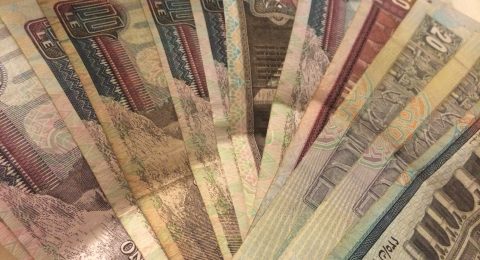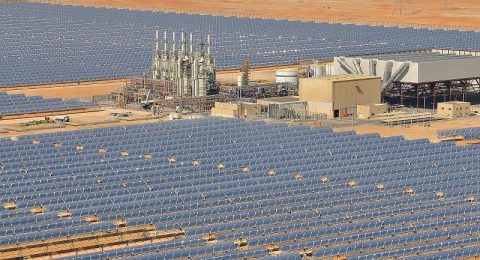Energy-poor Jordan warned on Monday that cut-offs in unstable Egyptian gas supplies could cost the kingdom more than $2 billion this year.
“We are worried about the energy situation. Egypt’s gas supplies have become an unstable source,” Minister of Trade and Industry Sami Gammoh told a news conference.
“We are doing our best and in all directions. We have received promises from Iraq and Gulf states to help cover our needs.”
On April 9, an explosion hit a pipeline in the Al-Midan area near the north Sinai town of Al-Arish that supplies Egyptian gas to Israel and Jordan, marking the 14th such attack since 2011.
Cairo said on Sunday it had scrapped a 2005 gas export deal with Israel, which generates 40 percent of its electricity from natural gas, with Egypt providing 43 percent of its gas supplies.
Jordan said in March it stopped receiving supplies from Egypt following an attack on the pipelines.
“Buying gas directly from the international market will cost more and this will pressure our limited financial resources,” Gammoh said.
Egyptian gas covers 80 percent of electricity production demand in Jordan, which imports 95 percent of its energy needs.
Gas supplies from Egypt plunged from 300 million cubic metres a day in 2009 to 78 million cubic metres in 2011, said Electricity Regulatory Commission head Ahmad Hyasat, who attended the press conference.
“Practically, Jordan is no longer getting Egyptian gas, and this is expected to cost the country more than 1.5 billion dinars ($2.1 billion),” he said.
“It is a big problem, which requires reconsidering electricity tariffs and charges,” Hyasat added, without elaborating.
In 2011, Jordan’s energy imports were estimated at $4 billion, and they are expected to increase this year to $5 billion or more, according to Faruq Hyari, energy ministry secretary general.
“A one-dollar hike in the price of international crude oil costs the economy and the energy sector $40 million a year,” he said.
Amman buys 10,000 barrels of crude a day from Baghdad at discount prices, and has repeatedly asked to increase the supplies.
Jordan’s overall debt reached $21 billion by the end of February, finance ministry figures showed last week.
Source: AFP & Zawya











